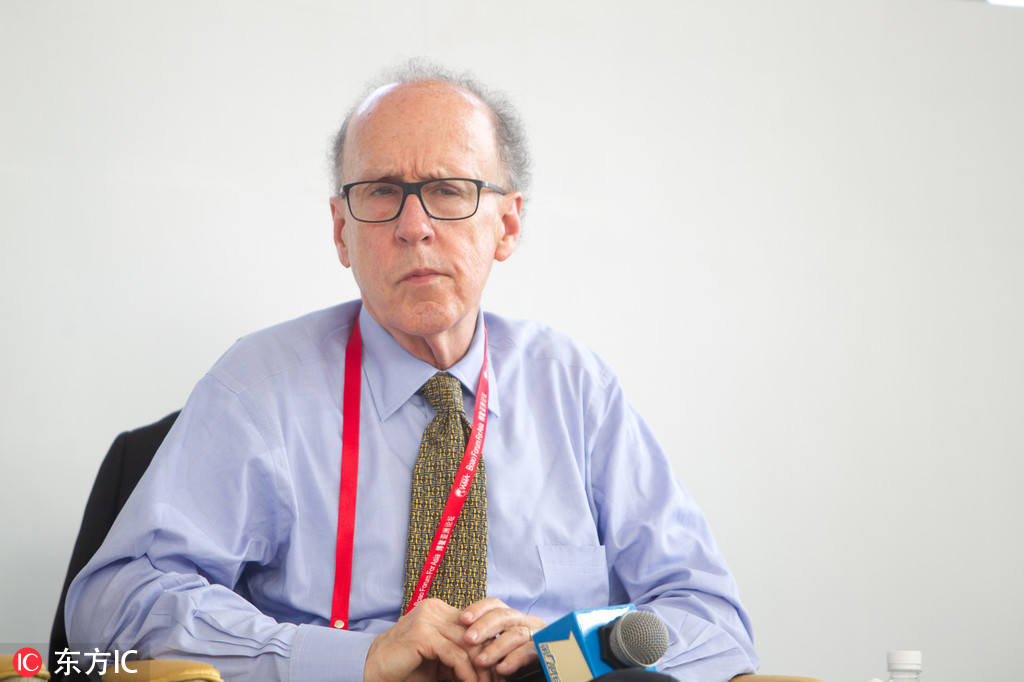
Beijing and Washington need to address their own economic imbalances by strengthening from within to make them better able to address the issues that have come between them, a senior US economist said.
Stephen Roach, former chairman of Morgan Stanley Asia and the firm’s chief economist and now senior fellow at Yale University’s Jackson Institute for Global Affairs, said that clashes between China and the United States are basically over “the strategies of their two very different economic models”.
Only by strengthening from within will the two countries be better positioned to reinforce their respective growth paths rather than create frictions that pose serious impediments to economic growth, he said.
Roach described the ongoing trade frictions as a fixation on a large bilateral imbalance between two nations that are afflicted with the multilateral problems of large imbalances in savings rates.
The US, with a chronic shortfall of domestic savings, had merchandise trade deficits with 102 nations in 2017. China, as the world’s largest saver, had trade surpluses with 169 nations, Roach said during an interview with China Daily.
“There can be no bilateral fix for multilateral problems — any such attempts through tariffs or other restrictive measures would just rearrange the deficits (or the surpluses) among nations, rather than reduce the overall state of imbalance,” Roach said.
The US also has complained to China about issues in intellectual property rights, technology transfers, cyber security and state-sponsored industrial policies, describing them as an existential threat to the economic future of the US.
“My analysis suggests that the evidence behind these allegations is very weak. The US seems determined to push ahead on all of these fronts — many of which are key to China’s own longer-term economic strategy,” Roach said.
According to the US economist, Washington mistakenly believes that tariffs will bring back US manufacturing jobs.
“However, with the manufacturing share of US employment down from 40 percent in the aftermath of World War II to just 8.5 percent today … that will be all but impossible to achieve,” Roach said.
He excluded the chance that the two largest economies in the world will find themselves in the so-called Thucydides Trap, a theory that war between a rising power and an established power is inevitable.
He notes that the two countries have long been linked in an important two-way economic relationship for most of the past four decades.
In terms of market access, Roach said both sides should offer compromises for a breakthrough on a US-China bilateral investment treaty, given that such a treaty would lift ownership caps on foreign direct investment by multinational corporations in both countries.
He also recommended that the two sides strengthen dialogues by setting up a permanent secretariat that would engage in full-time collaborative efforts on key policy issues to manage their differences by meeting each other halfway.
“China is rebalancing the structure of its economy from exports to internal private consumption … the US remains stuck in its old mindset — very much the case with a US economy that has done nothing to improve its woefully subpar domestic saving position. This typically gives rise to a sense of being scorned, which then leads to conflict,” he said.
He hailed China’s firm support for multilateralism and said multilateral trading that draws on the efficiency enhancements of trade liberalization, global value chains and hopefully a renewed commitment to the rules-based governance of globalization offers much more in the way of meaningful growth opportunities.





